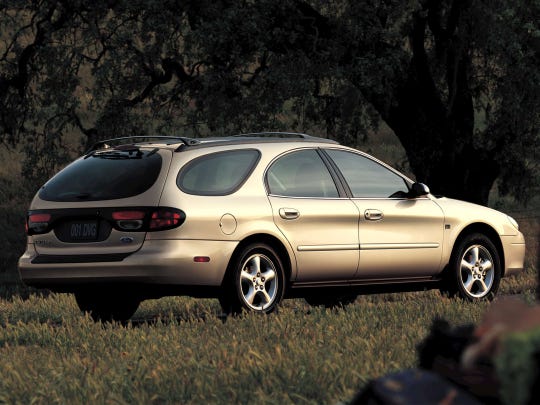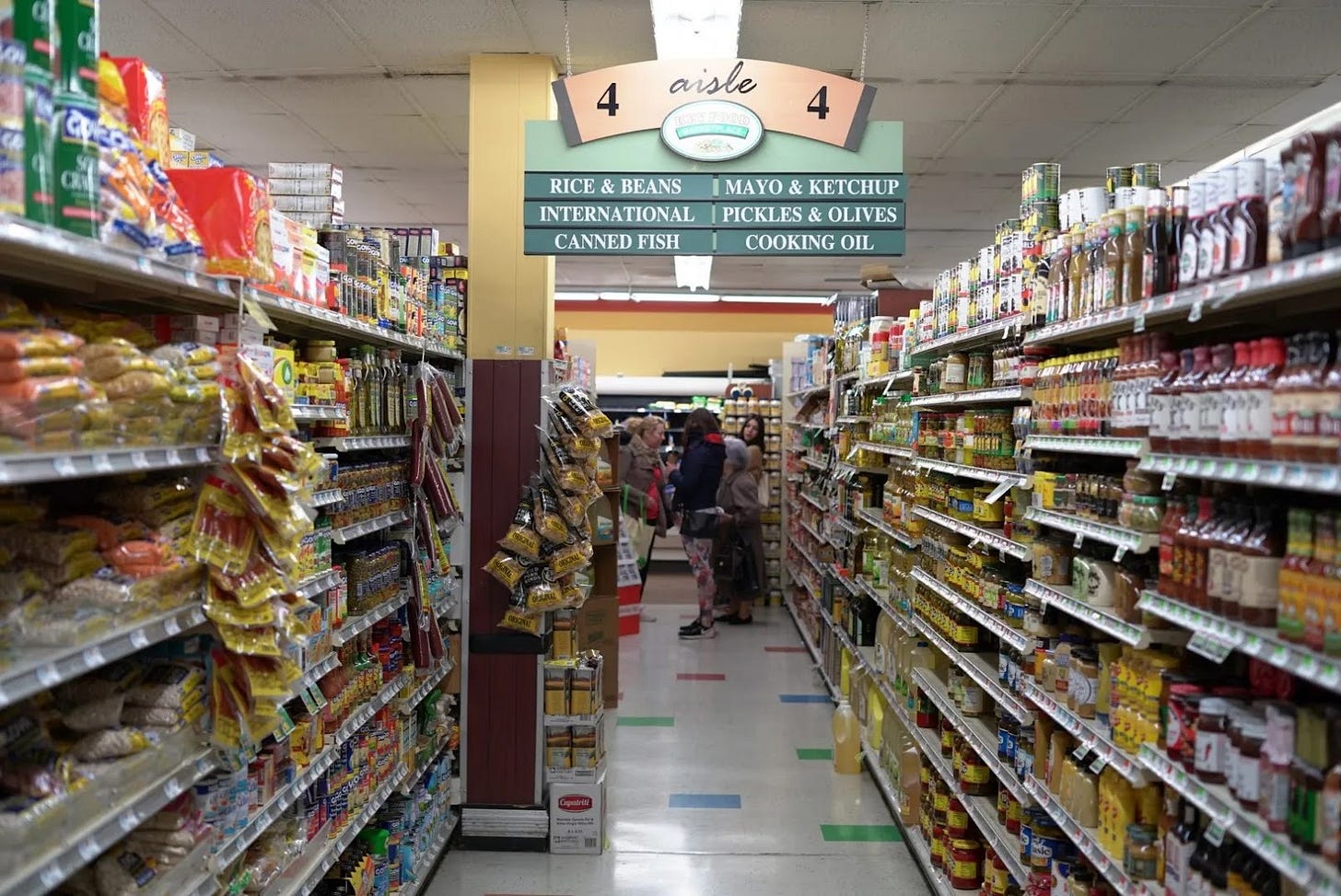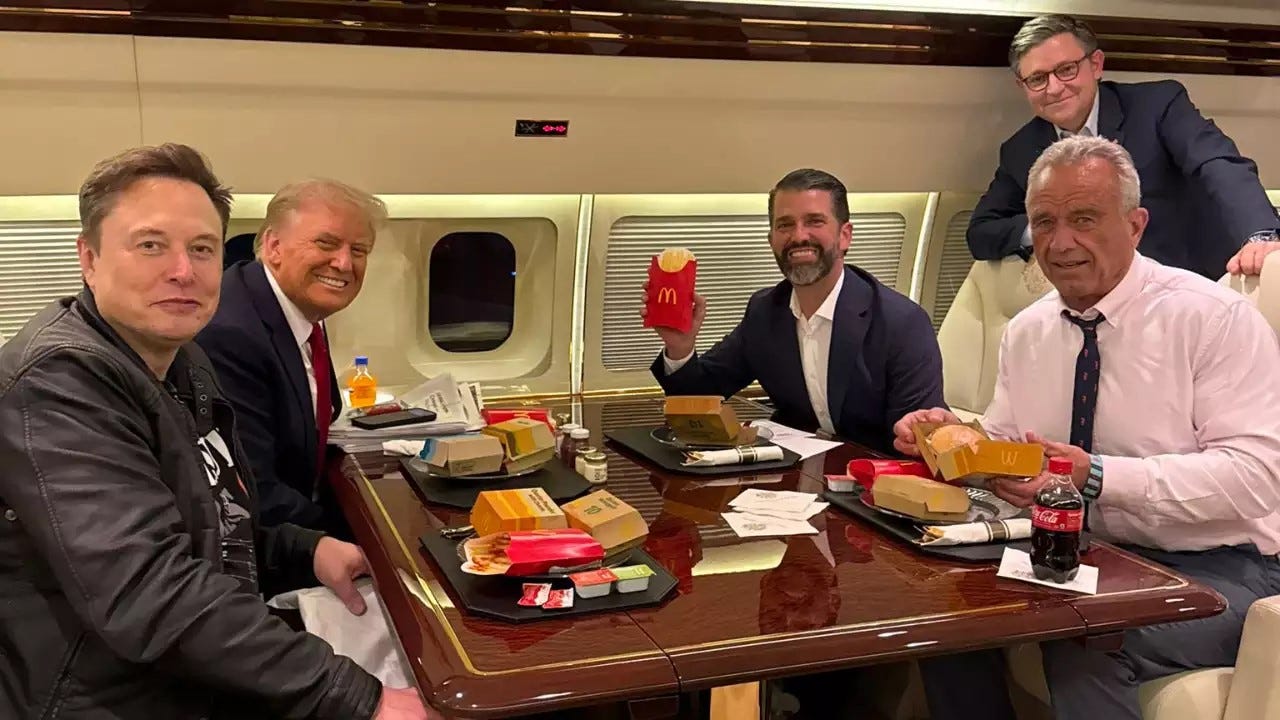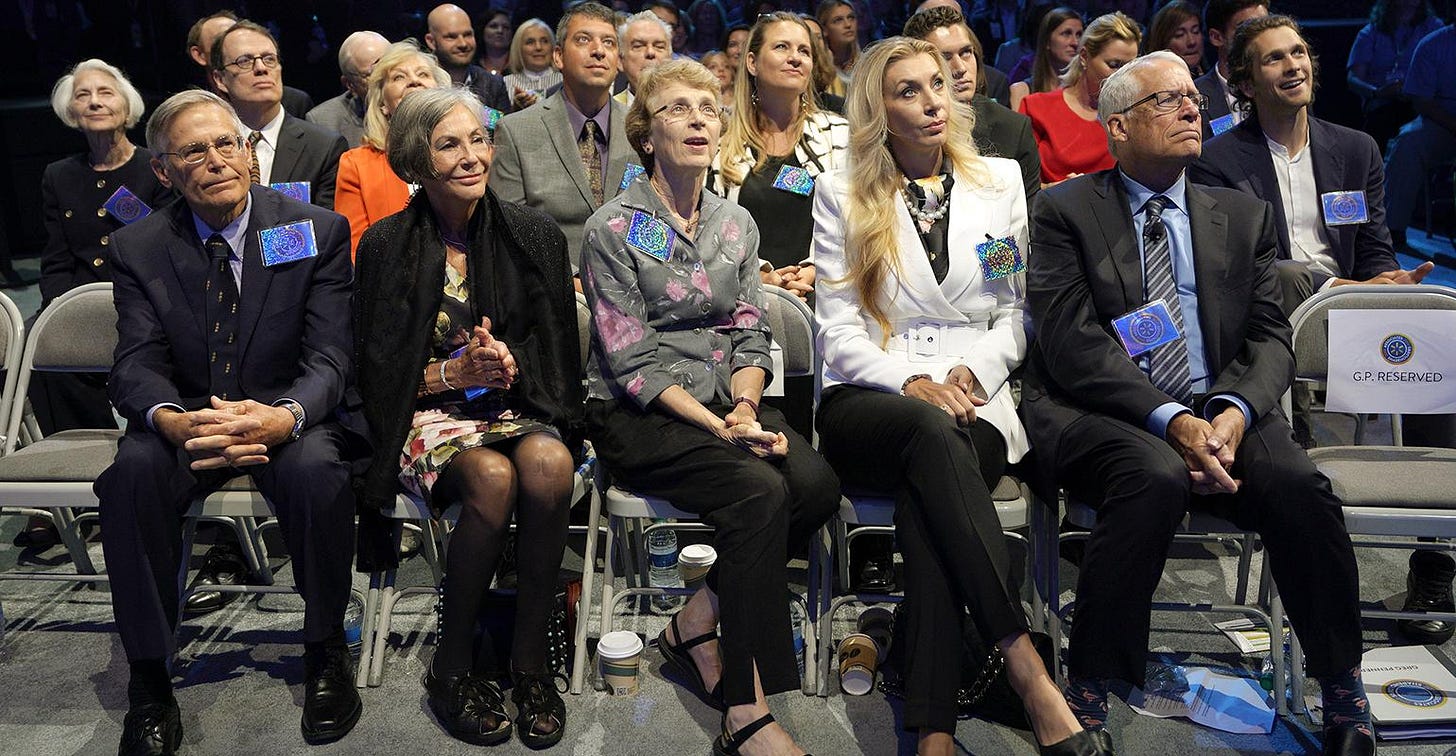FEED ME
FUCK ME
SHUT THE FUCK UP
I read these words on the back of a sweatshirt at Walmart, worn by one half of a couple browsing the same frozen food aisle as me. Her boyfriend was wearing a hoodie emblazoned with an image of Britney Spears on the cover of ...Baby One More Time. They were both wearing Vans: his plain, slip-on, and hers checkerboard, lace-up. I know these people. Not literally, but generally. They looked like they know their way around a Zumiez store. Maybe they even work at a mall, or another suburban place like the mall. A movie theater, a roller-rink, a Walmart.
I finished my shopping and exited the store, realizing that this couple had parked right next to me. They drove a golden, early-2000s Ford Taurus wagon, and the Britney Spears boyfriend had followed me outside to retrieve something from the back seat. The car looked messy, and triumphantly ugly, with a tumorous trunk and probably enough miles to crisscross America. The metallic sheen of their station wagon was DeLorean-esque; this vulgar couple seemed like time travelers from another era, back when epic humor was en vogue and Walmart was a punchline.
Twenty years ago, Jennifer Garner and Amy Poehler poked fun at the size of Walmart stores on Saturday Night Live. In faux-southern accents and dressed as Walmart greeters, they joked that they’re lucky to work at the front of the store, and should they ever venture any further, they would not be able to find their way out. “The competing weather systems in this Walmart could cause a tornado to happen,” Poehler exclaims. Later in the sketch, a confused Fred Armisen wanders into frame, and Garner and Poehler have to pull out a map of only the store’s northern portion to guide him to his destination. “Oh, oh! Burt Reynolds lives here,” Poehler quips, pointing at the map. Each time one woman speaks to the other, it’s met with a loud, gaudy “I know!” in response, as though the writers have more to say about the company’s employees than its stores.
Of course, we already know Walmart is large, that’s the whole point of Walmart: everything you could imagine exists under one roof, at the lowest prices possible. A space that large and its courteous employees can be isolating to New Yorkers who are used to cramped and under-stocked Duane Reades and Key Foods; greeters contractually obligated to feign politeness as you enter would cause most city-folk to recoil or ignore. But what was once comically alienating is now a last bastion of daily human interaction in the United States. Our toiletries and clothing and food are increasingly purchased via Walmart’s largest competitor, Amazon, whose nondescript warehouses dot the American landscape at sizes that dwarf even the largest Walmart Supercenters.1
We work from home, socialize from home, and shop from home, as more workers are paid less to make sure that our cleaning supplies and protein powder are delivered to our home hours after we order it. But now the promise of Amazon is in peril, as the Teamsters launch the “largest strike against Amazon in American History.” Though thousands of Amazon employees have organized with the Teamsters, Amazon refuses to negotiate, which is why the workers have launched a stoppage just one week before Christmas. Where to shop last-minute deals without crossing the picket line? Walmart.
But it’s not like Walmart’s hands are clean, of course. Ingrained in the culture of the company is a refusal to acknowledge unionization and an enforcement of anti-labor ideals, going so far as to train its employees—to their own detriment—to recognize and inhibit signs of budding unionization among coworkers. But Walmart also offers numerous benefits like PTO, discount cards, tuition and book stipends, stock purchase plans; this is far more robust than what’s offered to the average Amazon factory employee, who is often not even given a bathroom break.
But Walmart is not a benevolent corporation for its feeble benefits offering, just as the United States is not absolved of its generational sins by partially forgiving student loan debt. Walmart’s opposition to Amazon does not make it the “good guy,” but instead positions it as the perfect facsimile for Neoliberal American rot, a quiet cancer that falsely offers individual power via an illusion of choice, and not much else. While Walmart was once—and, frankly still is—discarded by pseudo-culturistas as a place where hillbillies fist fight on Black Friday, it is really just a place where anyone can get anything, and be aided by anyone in a branded vest. It even quietly built out robust offerings of vegan, vegetarian, and “international” cuisine, the one nearest me stocking banana ketchup. (I’ve never been to any standard American chain grocery store that stocks banana ketchup.) Strolling around is an exercise in personal freedom and choice, lest you forget all the company’s unsavory labor practices and marketplace unfairness.
One of Walmart’s most awesome qualities is that it always has the newest and dumbest snack food or frozen novelty or energy drink or co-branded treat before any other store. This is partly to do with its mid-American market-testing vibe and partly to do with the fact that it is one of the only chains that can afford to do this; you see the newest Coca-Cola Creation sooner at a Walmart in the suburbs of a tertiary city because the bodegas and chain pharmacies of New York cannot afford to immediately stock “Oreo Coke.” Walmart stocks so much junk, the vaguely right wing healthtelligentsia is about to go to war against it. The RFK Jr. vision of grocery stores is essentially anti-Walmart: farm-to-basket, unregulated, high cholesterol, “all natural.” Should Walmart refuse to stock raw milk, it could be in trouble. Or, it could, for once, use its monopoly for good, refusing any HHS demands thrown its way on account of its sheer size. Uncrustables could be delisted from Amazon, but they will never be removed from Walmart stores. That’s the beauty of brick-and-mortar, and why worrying about anything to do with RFK Jr. is the stupidest thing you could ever say to me.
Still, Walmart has invested more in technology to compete with Amazon, and its online ordering and delivery systems have become more advanced, too. My girlfriend’s mom seemingly orders groceries exclusively via Walmart+, which was launched in September 2020. Yet the chain is rooted in a commitment to its slogan: “Save Money. Live Better.” Since its inception, Walmart has guaranteed low prices, and even in an economy rife with shrinkflation and rising prices, Walmart remains cheaper than any other store I’ve been to. At this point, I’m just waiting for the company to acquire a streaming service. It won’t, though, because unlike Amazon, its directive has remained sinisterly vivid since its inception, with its accumulation of wealth a mere byproduct of American ingenuity and affability.
That Walmart offers space, choice, and immediacy is legitimately comforting in a world dictated by receiving Gmail tracking notifications of bars of soap and cans of Celsius. Sometimes, these deliveries are late, which is annoying: if the point of Walmart is everything and cheap, the point of Amazon is everything and now. But when you can get in the car and drive to Walmart, you never have to wait for your items. If what you want is out of stock, you get something else because you are there. You don’t turn around and drive home, nor do you whip out your phone and analyze shipping times of competing products. Walmart forces people to act rationally, even in a world intent on breeding irrationality. It is not normal to expect everyone in the United States to eat red meat and unpasteurized dairy products; it is also not normal to expect everyone in the United States to support a mega-monopoly as it works with the President to become even larger and wealthier. But, both these things are plausible. Liberals are scared of Walmart, and conservatives are split. Poor voters and workers are angry that prices have increased or their wages haven’t, and the wealthy and more esoteric are beholden to its economic power, or angry that their wider directives are inhibited by it. I am preparing for the future, and so are the Waltons.
Last week, the heirs of the Walmart fortune were named the “world’s richest family,” whatever that means. Amidst soaring stock prices, voting rights were also extended to the “next generation,” expanding the voting members of the Walmart board from three to eleven. Walmart, alongside America, feels on the precipice of change. Perhaps because of this, I have spent collective hours over the past couple weeks just strolling around my local Walmart Superstore. The experience and the prices have remained mostly unchanged more than anything I have personally endured over my lifetime. There is always going to be a greeter, the new Lay’s flavor, the new Nintendo console, the “Great Value” brand name emblazoned on products I will always walk by but never purchase. When inside a store I have to suppress mild wonderment, like I am witnessing the total zenith of American culture and progress, known globally for its clientele, size, and overall vibe. Of course, there are other places much more exceptional, but where else are you to witness perfect slices of life in such equal measure?
That Walmart is tactile is part of its appeal. I gravitate towards it regardless of Amazon strikes because its physical proximity and spatial footprint offer me more than an interface on my phone ever could. Even if one day, nobody else is there, I will be content in my incongruity, persisting animalistically in a world turned artificial.









How dare you shit talk the SW-2 Station wagon.
I am always embarrassed to be in Walmart. Probably because I grew up going to farms to buy raw milk with my Mom and internalized that it was morally wrong to support a Walmart.
I would rather shop online than Walmart. Better air quality